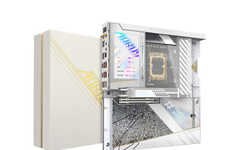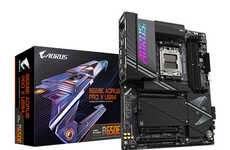
Siemens and KU Leuven Unveil a New Digital Twin Partnership
References: sw.siemens & 3dadept
Siemens Digital Industries Software has forged a strategic partnership with KU Leuven to establish the Digital Twin for Smart and Sustainable Products Chair.
The chair's primary focus will revolve around industrial electromechanical systems applications, machinery and drives, and transport vehicles. It will also seek out partnerships to push the boundaries of digital twin technology, and develop new solutions alongside these partners. Moreover, the Chair is committed to educating the world's next leaders about Digital Twin methodologies, ensuring that valuable insights and best practices are shared across industries and academia.
“With this Chair, we can further strengthen the ecosystem around developing and using Digital Twin in the manufacturing industry. Through these Digital Twin technologies, we can ensure that mechatronic products are designed, deployed, and managed more effectively,” said Professor Frank Naets, chairholder, KU Leuven.
Image Credit: Filip Van Loock
The chair's primary focus will revolve around industrial electromechanical systems applications, machinery and drives, and transport vehicles. It will also seek out partnerships to push the boundaries of digital twin technology, and develop new solutions alongside these partners. Moreover, the Chair is committed to educating the world's next leaders about Digital Twin methodologies, ensuring that valuable insights and best practices are shared across industries and academia.
“With this Chair, we can further strengthen the ecosystem around developing and using Digital Twin in the manufacturing industry. Through these Digital Twin technologies, we can ensure that mechatronic products are designed, deployed, and managed more effectively,” said Professor Frank Naets, chairholder, KU Leuven.
Image Credit: Filip Van Loock
Trend Themes
1. Smart and Sustainable Products - Developing digital twin technologies to enhance the efficiency and sustainability of industrial electromechanical systems offers a significant leap towards smart manufacturing.
2. Educational Integration of Digital Twin - Incorporating digital twin methodologies into academic curricula equips future leaders with cutting-edge knowledge and practical skills.
3. Collaborative Innovation - Partnering with various stakeholders to push the boundaries of digital twin technology promotes the creation of advanced and innovative solutions.
Industry Implications
1. Manufacturing - Digital twin technologies promise to revolutionize how mechatronic products are designed, deployed, and managed in the manufacturing sector.
2. Transportation - Applying digital twin technology to transport vehicles can significantly improve operational efficiency and maintenance processes.
3. Higher Education - Integrating digital twin concepts into higher education programs ensures that upcoming professionals are well-versed in this transformative technology.
2.4
Score
Popularity
Activity
Freshness























